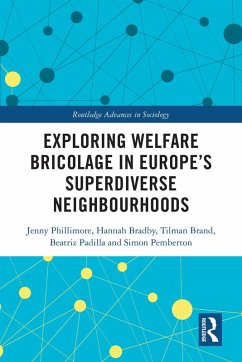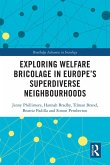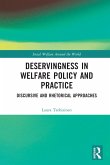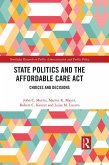Dieser Download kann aus rechtlichen Gründen nur mit Rechnungsadresse in A, B, BG, CY, CZ, D, DK, EW, E, FIN, F, GR, HR, H, IRL, I, LT, L, LR, M, NL, PL, P, R, S, SLO, SK ausgeliefert werden.
- Fiona Williams, Emeritus Professor of Social Policy at the University of Leeds, Honorary Professor at the Social Policy Research Unit, University of New South Wales, Australia, and Research Affiliate at COMPAS, University of Oxford
"Until now, superdiversity has been used as a concept for re-conceptualizing societies, developing theories of complexity, and re-tooling research methods. This book brings a much-needed approach in terms of superdiversity's meanings for public service provision and delivery. Based on solid empirical findings, it is a very welcome and timely contribution!"
- Steven Vertovec, Max Planck Institute for the Study of Religious and Ethnic Diversity
"This volume is a welcome and groundbreaking addition to the scholarship on superdiversity in Europe. Offering the compelling concept of 'welfare bricolage' to illustrate the creative mobilisation, use, and re-use of resources, particularly as it relates to healthcare provision, it contributes exciting new insights on migration and superdiverse populations. It is a useful tool for understanding the implications of and for policy across a wide range of settings."
- Heide Castañeda, Professor and Associate Chair, Department of Anthropology, University of South Florida









